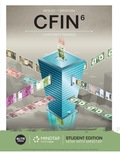Joseph and three other friends bought a $270,000 house close to the university at the end of August last year. At that time, they put down a deposit of $10,000 and took out a mortgage for the balance. Their mortgage payments are due at the end of each month (September 30, last year, was the date of the first payment) and are based on the assumption that Joseph and his friends will take 20 years to pay off the debt. Annual nominal interest is 6 percent, compounded monthly. It is now February. Joseph and his friends have made all their fall-term payments and have just made the January 31 payment for this year. How much do they still owe? Click the icon to view the table of compound interest factors for discrete compounding periods when i=0.5%. They will owe $ (Round to the nearest dollar as needed.)
Joseph and three other friends bought a $270,000 house close to the university at the end of August last year. At that time, they put down a deposit of $10,000 and took out a mortgage for the balance. Their mortgage payments are due at the end of each month (September 30, last year, was the date of the first payment) and are based on the assumption that Joseph and his friends will take 20 years to pay off the debt. Annual nominal interest is 6 percent, compounded monthly. It is now February. Joseph and his friends have made all their fall-term payments and have just made the January 31 payment for this year. How much do they still owe? Click the icon to view the table of compound interest factors for discrete compounding periods when i=0.5%. They will owe $ (Round to the nearest dollar as needed.)
Chapter6: Business Expenses
Section: Chapter Questions
Problem 69P
Related questions
Question

Transcribed Image Text:Joseph and three other friends bought a $270,000 house close to the university at the end of August last year. At that time, they put down a deposit of $10,000 and took out a mortgage for the balance. Their mortgage payments are due at the end of
each month (September 30, last year, was the date of the first payment) and are based on the assumption that Joseph and his friends will take 20 years to pay off the debt. Annual nominal interest is 6 percent, compounded monthly. It is now February.
Joseph and his friends have made all their fall-term payments and have just made the January 31 payment for this year. How much do they still owe?
Click the icon to view the table of compound interest factors for discrete compounding periods when i = 0.5%.
They will owe $
(Round to the nearest dollar as needed.)
Expert Solution
This question has been solved!
Explore an expertly crafted, step-by-step solution for a thorough understanding of key concepts.
Step by step
Solved in 3 steps with 1 images

Recommended textbooks for you



